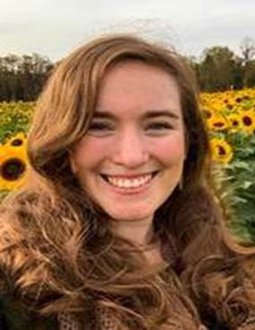Emily Gilbert

Address:
4800 Oak Grove Drive
Pasadena, CA 91109Curriculum Vitae:
Click hereMember of:
Exoplanet Discovery and ScienceJPL Postdoc
Biography
Emily’s (she/her/hers) work focuses on the detection and characterization of exoplanets orbiting low mass stars using data from the Transiting Exoplanet Survey Satellite (TESS) mission. She received her Sc.B. in Astrophysics from Brown University. At Brown, Emily was one of the founding members and a leader of the Brown CubeSat Team (now Brown Space Engineering), working on the smallest, EQUiSat. Emily spent a year at Goddard doing preparatory science for Roman Space Telescope. She then worked at Planet as an Image Quality Analyst on their imaging team working to process and analyze data from their fleet of Earth-imaging satellites. Emily went to the University of Chicago for graduate school and completed her research with scientists at the Adler Planetarium and the TESS team at NASA Goddard Spaceflight Center. For her dissertation, Emily used TESS data to detect and characterize exoplanets orbiting M dwarf stars. Emily focused on the TOI-700 system, including the small, habitable zone planet, TOI-700 d, as well as active stars. She is continuing her work on TOI-700, planet habitability, and stellar activity as a part of her postdoctoral research at JPL.
Education
PhD in Astronomy & Astrophysics, University of Chicago, 2022
M.S. in Astronomy & Astrophysics, University of Chicago, 2020
Sc.B. in Astrophysics, Brown University, 2014
Community Service
Supervised Cornell undergraduate student’s senior thesis on the flare rate of binary stars systems
Research Interests
Exoplanets, M dwarf stars, stellar activity, planet habitability, smallsats
Professional Experience: Planet, Image Quality Analyst, 2015-2016
NASA GSFC Post-baccalaureate researcher, 2014-2015
Selected Awards
Invited author for Frontiers in Astronomy and Space Sciences Journal, Rising Stars Edition
Recipient of the 2020 Robert H. Goddard Award for science
Chambliss Astronomy Achievement Student Award for the 237th AAS meeting, 2021
Illinois Space Grant Consortium Fellow (2018-2019)
CubeSat, EQUiSat, selected for launch as a part of NASA's CubeSat Launch Initiative (2014)
Selected Publications
“A Second Earth-sized Planet in the Habitable Zone of the M Dwarf, TOI-700” Gilbert, E., et al., 2023, ApJL, 944, 35
“Flares, Rotation, and Planets of the AU Mic System from TESS Observations” Gilbert, E., et al., 2022, AJ, 163, 147
“No Transits of Proxima Centauri Planets in High-Cadence TESS Data” Gilbert, E., et al., 2021, Front. Astron. Space Sci. 8:769371. doi: 10.3389/fspas.2021.769371
“The First Habitable-zone Earth-sized Planet from TESS. I. Validation of the TOI-700 System” Gilbert, E., et al., 2020 AJ, 160, 116